
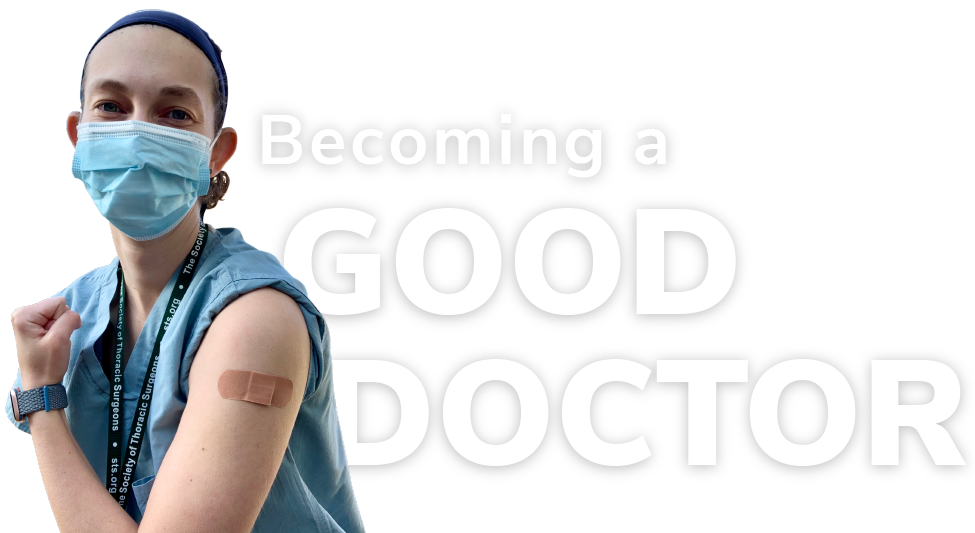
There was silence when there should have been screaming. After hours of effort, there should have been a baby. Instead, there were complications. Tension enveloped the operating room; life-and-death decisions were made to the beat of bleating monitors; and for several moments, it seemed as if the very room held its breath.
After an excruciating wait came an unmistakable wail. And the tears started to flow. First, from the baby. Then, from the new mom and dad. And finally, from Dr. Sarah Rudasill (’17), who had just delivered her first baby.
That newborn is now a toddler, and while he may never remember Sarah, the now second-year surgical resident at Massachusetts General Hospital will never forget him.
“It was a C-section with first-time parents,” she remembers. “They had tried for years and years to get pregnant. When they finally did, it was a complicated birth. We finally did the C-section, and when we had the baby, the husband started crying, and then I started crying, and the baby was crying. It was a beautiful moment.”
“It was a C-section with first-time parents,” she remembers. “They had tried for years and years to get pregnant. When they finally did, it was a complicated birth. We finally did the C-section, and when we had the baby, the husband started crying, and then I started crying, and the baby was crying. It was a beautiful moment.”
In the span of minutes, the room experienced the full range of emotions. That’s what has drawn Sarah to medicine. The humanity.
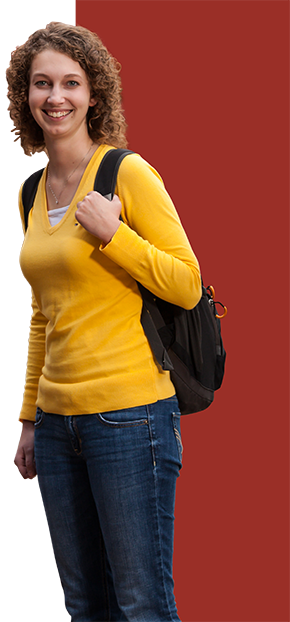
Sarah grew up in New Oxford, Pennsylvania, near a bend in the Conewago Creek. By the time she was six years old, she seemed to have a general idea that she wanted to spend her life in health care. Curious, she bent the ear of every doctor, nurse and health care professional she met in and around her hometown.
Throughout her educational career, Sarah proved to be an excellent student. Though finances were a concern, she applied and was accepted at Stanford, Vanderbilt, the University of Miami and Wake Forest. In one of those ear-bending conversations with her doctor, who happened to be a former admission counselor prior to pursuing medicine, Sarah was convinced Wake Forest was her next destination. The generosity of those who funded the Stamps Leadership Scholarship – a full ride with funded summer opportunities – made it a reality.
“Wake Forest taught me how to learn – how to gather information, convey knowledge, express and communicate data,” Sarah said. “My ability to be a good friend comes from the relationships I formed with my peers and colleagues at Wake Forest. And I think that extends into being a good doctor now – how I care for people and have empathy for them. It goes back to those nights in my freshman hall where I started learning who I am and who I want to be and how I want to treat people. I have to attribute it all to Wake Forest; it opened my eyes to an entire new experience.”
Knowing she had a lifetime of science ahead of her, Sarah decided to major in economics. She liked theorizing, understanding compounding variables and analyzing relationships. She earned the prestigious national Richter and Truman Scholarships; she served as the Student Trustee and Student Union President; she tutored her fellow students for three years. Excited to explore the vast field of health care, she started dabbling in it all – research, public policy and clinical work.
She researched how to cure inflammatory bowel disease as an intern at the Wake Forest Institute of Regenerative Medicine; performed her first surgeries on the spines of salamanders at the University of Minnesota; conducted comparative research in Costa Rica while working at a small clinic in a remote mountain village; studied at Cambridge; and evaluated United Nations child and maternal health programs through an economic think tank in Cape Town, South Africa, (where she also bungee jumped off bridges, swam with sharks and learned to surf on some of the world’s greatest waves).
“So much of who I am – the foundation – was laid at Wake Forest,” Sarah said. “It isn’t just about the degree. Wake Forest asked, ‘How are you going to make your impact on the world?’ And that certainly resonates with me.”
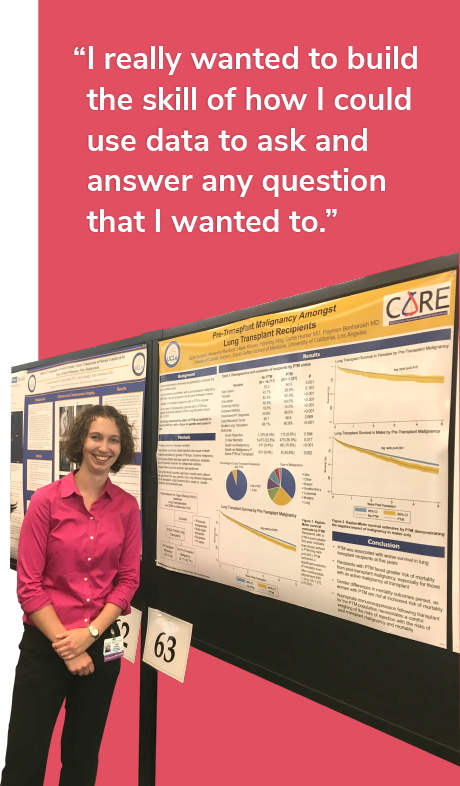
Though Sarah had traveled the world as an undergrad, she’d never crossed west of the Mississippi until opportunity came chasing. Like with undergraduate schools, she had a slew of medical school offers. In the end, she was offered a full ride to UCLA’s David Geffen School of Medicine.
“It was an incredible opportunity,” she said. “Having that scholarship and the one from Wake Forest meant that I could do anything with my life and would not have to make decisions predicated on debt. That is really liberating.”
Her first two years were spent establishing a wide foundation of knowledge and exploring the opportunities within health care. Early on, she joined the CORELAB: Cardiac Outcomes Research Laboratory, under the direction of Dr. Peyman Benharash. There, she worked with large national databases that record variables for patient admissions in hospitals across the country.
“I really wanted to build the skill of how I could use data to ask and answer any question that I wanted to,” she said. “In the lab, I learned how to code and ultimately was able to ask any question of the data.”
One of her favorite projects was investigating infective endocarditis – “an infection of the heart valve,” she explained. She could see how patients hospitalized with this condition fared. Did they have a heart attack during their stay? Did they have other complications? Did they leave the hospital healthy or suffer pulmonary embolism or recurring septicemia – a blood infection? From that, she could start asking questions, identifying patterns and surmising leads that could result in adjustments to care.
She also conducted research related to organ transplants. In one body of work, she explored how to expand the pool of eligible organ donors. Allowing one question to lead to another, she investigated the effect of malignancy in potential organ donors by asking, “What is the actual risk of transmitting cancer to a recipient of an organ?”
“We’re limited in how much analysis we can do with this retrospective database,” she explained. “The next steps would be orchestrating a randomized control trial and testing our hypotheses, but that takes years and years. I intend to use my residency research years to learn how to take those next steps and design trials.”
During her third year in medical school, she added a teaching element to her education by tutoring a group of four students through their first two years. She had valued that mentoring relationship when she tutored students at Wake Forest; she also appreciated how those who had gone before her had helped her succeed. To this day, she continues to mentor medical students.
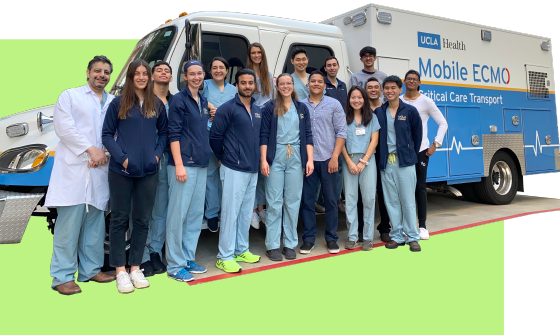
Year three of medical school is also devoted to clinical clerkships and rotating through various specialties. One of those rotations took Sarah to the delivery room where she helped deliver her first baby – that complicated birth via C-section.
Another rotation was in oncology.
“I love working with cancer patients the most,” Sarah said. “You get to sit down with someone who is overwhelmed by life-changing news, and they’re trying to figure out what is next. We have discussions about their values and goals and what is important to them. And then we decide what to do. I love the bonds that are formed, not just with the patient, but with their families. There’s something inherently valuable in those relationships and helping to walk people through those journeys. You follow them for life.”
And she also experienced a rotation in surgery, which is what she thought she’d pursue when she entered medical school.
“I’ve always been attracted to surgery,” she said. “I gravitated toward the efficiency of it and the ability to actually cure someone. A lot of times in medicine, you have to be satisfied with the delayed gratification of making small modifications and tweaks to patient medications or dietary habits or exercise plans. You have to be very patient to see any kind of change. But I liked the opportunity to identify a problem with someone and fix it immediately. I like the immediate gratification of making someone better.”
After enjoying rotations across multiple specialties, Sarah decided to pursue general surgery.
“I love surgery because you have the whole spectrum of human emotion,” she said. “You get the greatest joy when things go well, and you get to walk with people when things don’t go well, and you get to be with people when the pain comes with losing a loved one. I was sold on surgery within my first month of rotations.”
“I LOVE
SURGERY
because you
have the whole
spectrum of
human emotion.”
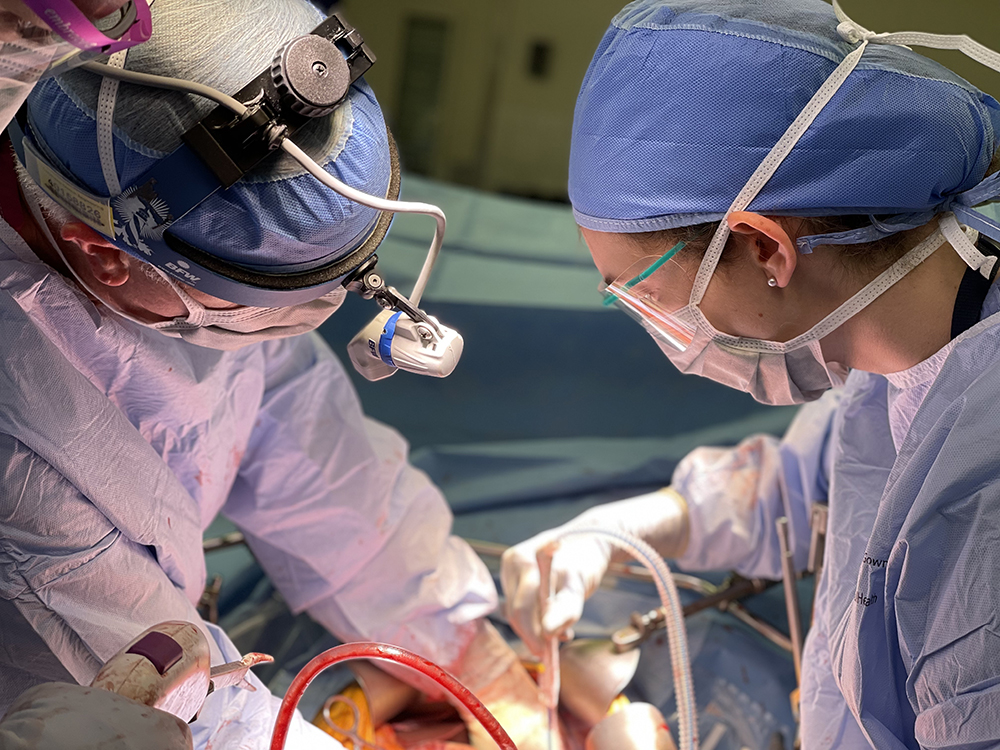
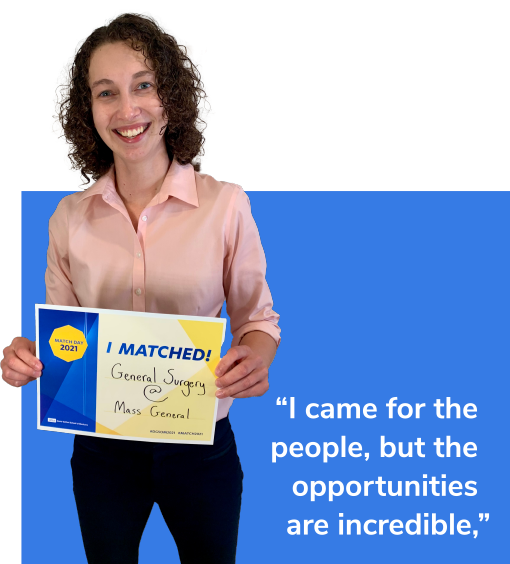
In March 2021, at the end of her fourth year at UCLA, Sarah gathered with her 195 fellow anxious and excited medical school classmates to learn where they would be assigned their residencies.
As she compared various hospitals and programs that could take her into her future, one stood out. On her interview day at Massachusetts General Hospital, the third oldest hospital in the nation and the original and largest teaching hospital of Harvard Medical School, Sarah found great clinical training. But something else captured her attention.
“I met many strong female residents and chief residents who were brilliant, competent and kind,” she said. “They were great with patients and great with each other. They uplifted one another. I could point to them and say: ‘That is who I want to be.’”
When she opened her envelope, she saw her first choice listed. She was moving to Boston.
“I came for the people, but the opportunities are incredible,” said the second-year surgical resident. “There’s a robust surgical education fellowship here. There are clinical trials running all the time. I’m still interested in policy, and if I want to pursue more training in policy development, there’s the Kennedy School. I’m still interested in administration, and if I want to go that route, Harvard Business School is here.”
Currently, she is working on building up her knowledge base. “Intern year was about advancing patient care,” she explained. “I counseled families, helped clarify code status, pulled chest tubes, and closed or made incisions. It was learning how to be a doctor. As a second-year resident, I’m starting to learn how to operate. To be a good surgeon, you must first be a good assistant, and that’s the focus of this year.”
Sarah has at least eight more years of training to go, and in that time, she will have a lot of decisions to make. Does she want to pursue a career as a surgeon, an educator, a researcher, or all three? “Medicine is one field that is somewhat exceptional,” she said. “It’s a long, slow, disciplined road. It’s very humbling. You have to trust the process, keep working hard and do your due diligence every day. One day, it will all come together.”
“Medicine is one field that is somewhat exceptional,” she said. “It’s a long, slow, disciplined road. It’s very humbling. You have to trust the process, keep working hard and do your due diligence every day. One day, it will all come together.”
In the waning hours of her long shifts, as she visits her patients before heading home, Sarah remembers why she endures the more-than-80-hour work weeks and why she is able to look forward to several more years of intense education. With the optimism and ambition that has always defined her character, Sarah reminds herself what all of this is about: people.
All throughout her journey, Sarah has been very aware of the humanity of medicine. Through her research of thousands of data points, she can ask questions that ultimately might change the course of one person’s life. Through her mentorship of other students, she can help open mindsets that might impact the path of a single person. Through her care of each one of her patients, she can offer compassion and empathy to that person in moments joyous and painful.
Sarah felt Pro Humanitate long before she knew what the Latin meant. She learned it from the people in her hometown who answered her medical-related questions. She realized it when she was offered a full ride to Wake Forest. She practices it, one patient at a time. And now, she empowers it.
“The key to changing my trajectory in life was having the chance to get an education at Wake Forest,” Sarah said. “I’m so grateful for the opportunity to get a scholarship at Wake Forest because I would have otherwise never been able to attend, and it has fundamentally changed the course of my life. One of my goals is to give back and empower other students to have the opportunity who otherwise wouldn’t.”

“The key to changing my trajectory in life was having the chance to get an education at Wake Forest,” Sarah said. “I’m so grateful for the opportunity to get a scholarship at Wake Forest because I would have otherwise never been able to attend, and it has fundamentally changed the course of my life. One of my goals is to give back and empower other students to have the opportunity who otherwise wouldn’t.”
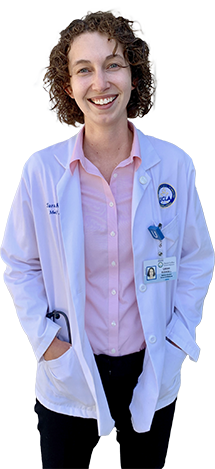
Recently, she created a scholarship for a student at her high school in New Oxford.
“It barely scratches the surface,” she said. “I want to make it a full scholarship that will profoundly change a student’s life and pay for someone from my high school to go to college, get a degree and have a similar life-changing experience.
I hope people who love Wake Forest realize what an impact they can have. It’s not just getting a degree; it’s fundamentally changing a person’s life.”
That, after all, is what Pro Humanitate is all about.
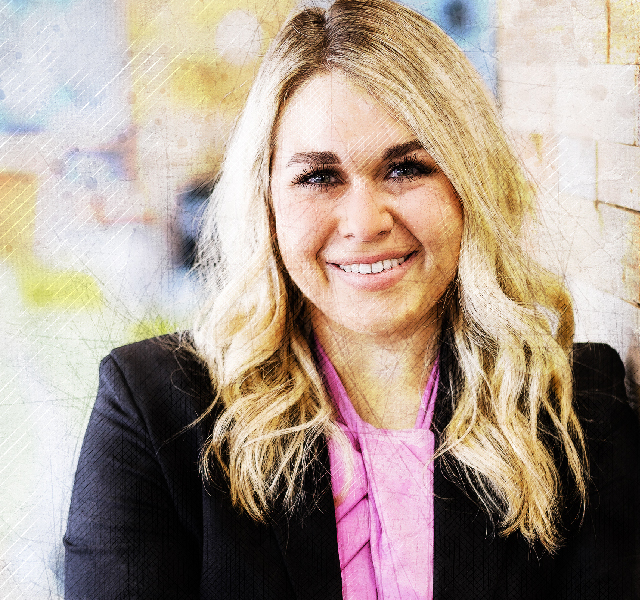
Leah Wyrick (’22)
“I have been given the opportunity to help change the lives of millions of other women.”
